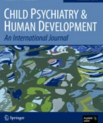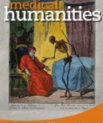Intuitive parenting: understanding the neural mechanisms of parents’ adaptive responses to infants
When interacting with an infant, parents intuitively enact a range of behaviours that support infant communicative development. These behaviours include altering speech, establishing eye contact and mirroring infant expressions and are argued to occur largely in the absence of conscious intent. Here, we describe studies investigating early, pre-conscious neural responses to infant cues, which we suggest support aspects of parental intuitive behaviour towards infants. This work has provided converging evidence for rapid differentiation of infant cues from other salient social signals in the adult brain.

When interacting with an infant, parents demonstrate a behavioural repertoire labelled as ‘intuitive’ because it appears to occur without conscious awareness. In this review, we examined how some intuitive responses to infant cues might be implemented in the brain, specifically those responses occurring in a time window considered ‘preconscious’ [46]. Rapid detection of infant communicative signals has been found in subcortical survival circuitry, namely the PAG of the brainstem. This early processing may impact on physiological arousal and propagate to a range of cortical regions. At the cortical level, infant features may modulate the classical early sensory responses (e.g., N100). MEG findings examining responses to infant visual and auditory cues suggest their quick detection in the OFC, occurring as early as 130 ms post-stimulus onset. Slightly later in time, there is evidence to suggest engagement of cortical motor systems in the brain. These responses may support orienting to the infant and initiation of motor responses in parent–infant interactions. Finally, it is becoming clear that experience-dependent plasticity occurs in the parental brain, which may allow adults to adapt their interactive behaviours to accommodate the infant’s perceptual and communicative development. While most investigations have examined infants’ visual and auditory cues, we suggest that touch and olfaction may also drive intuitive parenting responses and present important avenues for future work.
The results are published in the journal Current Opinion in Psychology.
Read the article here.
Contact: Postdoc Christine Parsons, Dept. of Clinical Medicine and IMC



